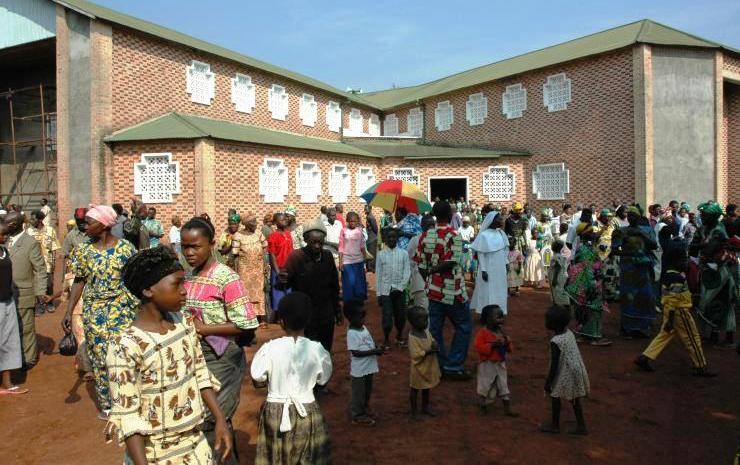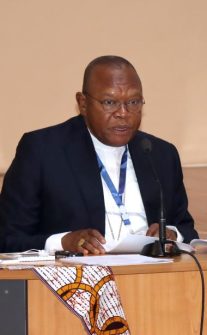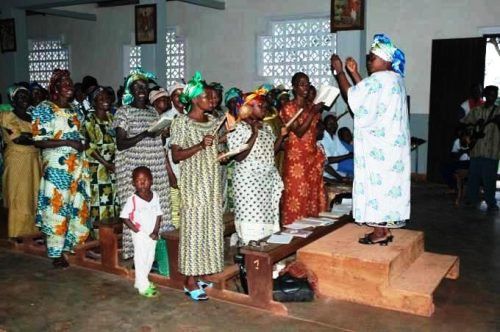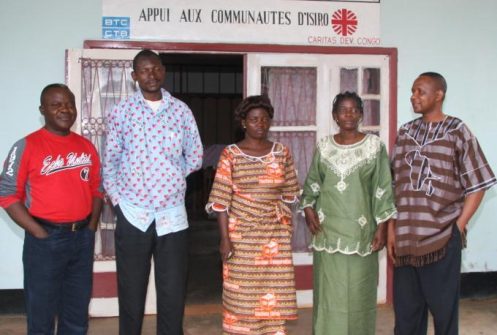The Catholic Church. Values and Service.

There is a trait that distinguishes the Congolese Episcopal Conference (CEC): its ability to intervene in the various sectors of society in which it is directly involved. And it does so with competence and determination by a widespread ecclesial presence in the territories.
This does not mean a desire for political interference, but a desire to reaffirm Christian values: respect for human rights, justice, peace… And it is, therefore, a point of reference, even civic, for all Congolese.
It is a well-articulated action that involves the Catholic base. In fact, the Secular Coordination Committee (CLC) was established in 1992 – in the 1990s, the democratic transition which has yet to be completed was outlined – and is one of the strong points of Congolese civil society.
The CLC, starting from the messages of the bishops, who are often critical of governments, provokes the institutions, denounces bad government and organizes peaceful protest demonstrations.

The Catholic Archbishop of Kinshasa, Cardinal Fridolin Ambongo. Photo Secam
In this way, lay Catholics have the function of protecting the bishops, who express themselves while maintaining the “neutral” character of their declarations and avoiding being seen as political opponents.It has a “political” commitment carried out through the structures of the Justice and Peace Commissions, present in all the dioceses, which is also very active in civic awareness and the observation of the electoral process. During the national elections last December, twenty-four thousand Catholic and Protestant election observers were trained to follow the voting process until the results were counted. Church observers covered more than two-thirds of the seats in the country, allowing international criteria on electoral transparency to be respected.

The Congolese Catholic Church is one of the most active Churches in Africa. File swm
It is a Catholic Church that acts through various diocesan services, pastoral care, catechesis, liturgy (a specific rite recognized by Rome), Caritas, the Justice and Peace Commission and school and health services. It is thanks to all its social services that the Church offers a very important service to tens of millions of Congolese.
The Congolese Catholic Church is one of the most active Churches in Africa. Catholics, who are continuously increasing, represent around 40% of the population (90% Christian). Church attendance is also high among young people, and the Church enjoys an important flourishing of vocations. There are a total of 4,602 diocesan priests exercising their ministry in almost 1,500 parishes and 48 dioceses. Many Congolese priests and missionaries are working in other countries in Africa, Europe and America. There are also 11,000 religious Congolese men and women involved in pastoral care, education and health services.
No to silence
Relations between the Church and the political world are governed by the principle established by the Constitution, that is, secularism, the pillars of which are freedom of belief, the exercise of worship and the autonomy of the Churches and the State. Christians do not have their own political party and the Church does not support candidates. But everyone knows where and who the Congolese Church looks to. For decades, with its bishops first and foremost, the Church has closely followed the local and national socio-political situation, intervening with messages and statements to denounce the widespread plague of corruption, bad governance and the abuse of authority.

Caritas members in Isiro. Catholic Church acts through various diocesan services, pastoral care, catechesis, liturgy, Caritas, the Justice and Peace Commission, school and health services. File swm
The Congolese Catholic Church remains solidly a reality recognized by the people who count on it in its attempts to channel its human and social development efforts, as well as to mobilize personally and collectively. Today this Church is led by the president of the bishops’ conference, the Archbishop of Kisangani Marcel Utembi Tapa (in communion with the other outspoken prelate who is the Cardinal Archbishop of Kinshasa, Fridolin Ambongo, since 2019) who is not afraid to denounce the wars for the minerals of energy transition, the exploitation of Congolese resources for a supposed global ecologism which in reality causes enormous environmental and human damage to the country. And he is not silent about the exploitation of minerals and rare earths by foreign multinationals with the complicity of local governments: «A very rich country in which a large part of the population lives in poverty – he says. Faced with this situation, we as pastors cannot remain silent.” And he never tires of denouncing the gangrenous insecurity in the east of the country in particular (with hundreds, even thousands of deaths), urging the government to intervene to stop the violence and restore peace. (Open Photo: After Sunday Mass in Isiro Parish. File swm)
Elio Boscaini



